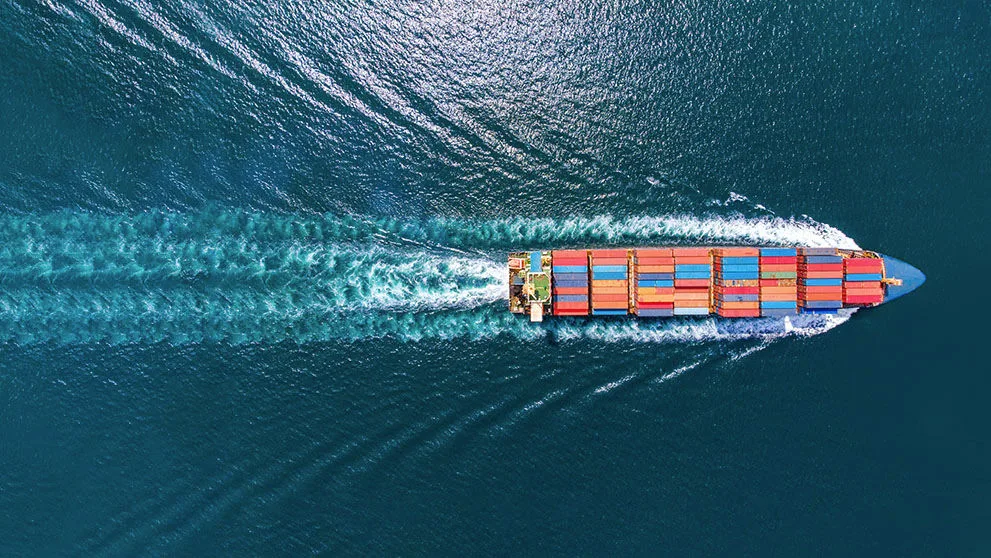
International shipping is complex because it involves many different countries and regulations. Shipping liquids across borders can be especially difficult due to the nature of liquids. In general, non-hazardous liquids, such as skincare products, beverages (non-alcoholic), and cleaning solutions, can be shipped via standard air, sea, or ground freight services. However, items that are classified as flammable, corrosive, or alcoholic may require special handling, packaging, and import licenses to comply with international shipping laws.
Moreover, each destination country has varying regulations on what can be imported and what requirements are needed to import certain liquids into their country. Understanding both origin and destination rules, as well as carrier-specific requirements, is key to avoiding delays, penalties, or even confiscation of goods.
To navigate this complexity with confidence, it’s best to work with an experienced international logistics partner. DHL Express offers expert support for businesses shipping liquids overseas, helping ensure compliance with customs regulations and the safe, efficient transport of your goods. To help guide you through the process, DHL Express gives you insights into the best ways to ship your liquids internationally.
Can I ship liquids?
Yes, liquids can be exported from Indonesia via standard air, sea, or ground freight services, provided your business has obtained the necessary export license as required under MoT Regulation 19/2021.
Companies planning to export liquid goods, such as non-pharmaceutical precursors, oil, natural gas, and other fuels, must secure this license before shipment. 1 Additionally, alcohol-based, flammable, corrosive, or otherwise hazardous liquids are subject to stricter regulations and require special documentation, packaging, and handling. For instance, flammable chemicals or alcoholic beverages must comply with dangerous goods regulations and typically cannot be shipped through standard courier services.
It's also crucial to consider the import regulations of the destination country, as these can vary significantly. Products that are permitted in one country may be restricted or banned in another. For example, Japan classifies items like toothpaste, shampoo, and liquid medicine as restricted, requiring proper licensing for import.2
As such, it’s important for businesses to always check both Indonesia’s export rules and destination import regulations.
What liquids am I prohibited from shipping by regular mail?
Some types of liquids are considered hazardous materials (hazmat) and cannot be shipped through standard mail or courier services. These include, but are not limited to:
- Flammable liquids (e.g., alcohol-based perfumes, nail polish, essential oils in high concentrations)
- Corrosive substances (e.g., strong cleaning agents, industrial chemicals)
- Compressed gases (e.g., aerosol sprays)
- Toxic or reactive substances
Shipping these types of liquids requires specialised transportation services that comply with international safety standards. Moreover, it should involve certified packaging, proper labelling of dangerous goods, and thorough documentation to meet your target country’s customs regulations.
How can I ship liquids that contain alcohol, such as perfume and wine?
Shipping liquids that contain alcohol, like perfume or wine, requires careful planning and a thorough understanding of import regulations in the destination country. Each country has its own set of rules regarding the shipment of alcohol-based products, and non-compliance may result in delays, penalties, or rejection at customs.
For example, if you plan to export wine to Singapore, the shipment must comply with requirements enforced by the Food Control Division of the Singapore Food Agency (formerly AVA). This includes:
- Adhering to labelling regulations
- Providing a health certificate and a laboratory analysis report
- Registering with Singapore Customs to obtain a Central Registration Number
- Registering with the Food Control Division for import approval
Once you're familiar with the import requirements, the next step is to partner with a reliable logistics provider like DHL Express. While DHL Express restricts shipments containing alcoholic beverages and perfumes in some regions, we can provide expert guidance on alternative solutions for transporting them.
How do I ship perishable liquids internationally?
Sending perishable liquids, such as milk, canned soups, fruit juices, or dairy-based beverages, abroad requires additional care and consideration. These products are highly sensitive to temperature, handling time, and packaging conditions, especially during international transit.
To maintain product integrity and prevent spoilage, shippers must account for:
- Temperature control throughout the entire shipping journey
- Proper insulation and packaging to prevent leaks and contamination
- Shorter transit times or express delivery options
- Import restrictions and health certifications are required by the destination country
For businesses in Indonesia and other parts of the region, DHL Express offers cold chain logistics solutions tailored to temperature-sensitive shipments. These services ensure that perishable liquids are transported under strict temperature controls using specialised packaging, insulated containers, and real-time tracking.
How do I ship liquids in bulk?
Shipping liquids in bulk is possible when the products are non-flammable and non-hazardous, such as cooking oil, bottled water, or skincare solutions. These items can typically be transported through air, sea, or land freight, depending on volume and urgency.
When shipping in bulk, key considerations include:
- Choosing the right container type (e.g., drums, IBC tanks, or flexitanks)
- Compliance with international packaging and labelling standards
- Understanding the destination country’s import requirements
- Partnering with an experienced logistics provider to handle large-volume shipments safely and efficiently
How do I package liquids to be shipped?
Investing in high-quality packaging is of utmost importance to ensure that the liquids you plan on shipping do not leak or that the fragile glass bottles in which it is packaged do not crack. Securely package the liquid you want to be shipped and make use of packaging items such as adhesive tape, bubble wrap, sealed plastic bags and containers, cellulose wadding, absorbent packets, and corrugated cardboard boxes.
Add a label detailing the nature of the liquid. For example, “Flammable”, “Fragile”, or “Hazardous”. Lastly, pass the package to the courier of your choice and wait for your package to be delivered.

How do I get started with shipping liquids overseas?
Shipping liquids internationally involves more than just packing and sending your products. Whether you're shipping small quantities or bulk volumes, it's important to follow the correct process to ensure compliance and avoid delays or penalties.
1. Identify the type of liquid
Begin by classifying the liquid you plan to ship. Is it non-hazardous, alcohol-based, or perishable goods? Each category may have different restrictions and shipping requirements, especially when it comes to packaging, documentation, and carrier acceptance.
2. Check the destination country's import requirements
Every country has its own set of regulations on the importation of liquids. Check whether:
- The liquid is restricted, prohibited, or freely importable in the destination country
- Import licenses or special permits are required
- The product must comply with local standards, such as health, food safety, or alcohol labelling laws
- Customs registration is needed for commercial quantities
3. Prepare packaging & labelling
Proper packaging is critical when shipping liquids. It helps prevent leaks, breakage, or contamination during transit. Your packaging should:
- Use leak-proof and tamper-evident containers
- Include absorbent material in case of spills
- Comply with UN packaging requirements if the liquid is classified as dangerous goods
- Be clearly labelled with product information and handling instructions
Make sure to follow your courier’s guidelines for packaging and labelling liquid items.
4. Prepare required shipping documents
To clear customs and ensure a smooth delivery, you’ll need to prepare and include the correct documentation with your shipment. In Indonesia, you will need the following documents for export:
- Bill of Lading, Air Waybill, or other transport documents (e.g., postal or cargo receipt)
- Commercial Invoice
- Customs Declaration for Export
- Packing List
- Export Goods Declaration (PEB)
- Insurance Certificate
- Export Authorization or Permit
- Certificate of Origin
Additionally, certain destination countries may require specific import licenses or supplementary documents for liquid shipments. To prevent delays, penalties, or customs issues, it’s essential to ensure that all required paperwork is complete and accurate before dispatching your goods. For peace of mind and smooth processing, we recommend consulting with DHL Express’s expert team or your trusted customs broker. They can help you confirm that your shipment complies with both Indonesian export regulations and the import requirements of your destination country.
Ship liquids abroad with DHL Express
Shipping liquids internationally can look tedious at first glance. However, with the proper planning and by partnering with the right international courier, it can be as easy as mailing a regular package overseas. With DHL Express, you have experts who know how to ship liquids internationally, from customs documents assistance to specialised logistics solutions and efficient transportation. Consider our services for hassle-free transport of your packages.
Get started on shipping liquids overseas and open a business account with DHL Express today.
































